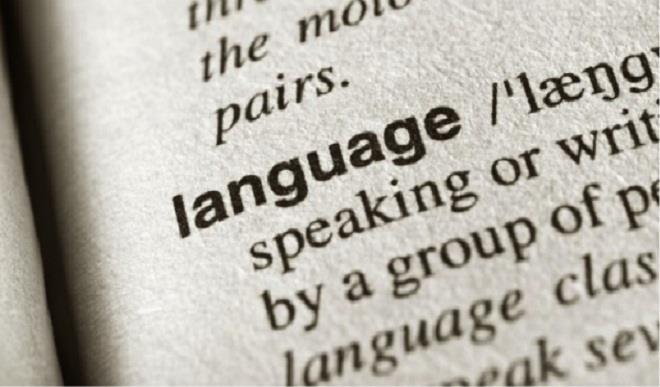
The conventional wisdom in Nigerian education circles is that speaking native Nigerian languages (in school and at home) impedes children’s capacity to master the English language. That is why several secondary schools in the country have a “vernacular-speaking-is-prohibited” policy. (Never mind that the expression “vernacular speaking” is both nonsensical and nonstandard.)
In many schools, students are punished for speaking their native languages in school. Many parents in Nigeria’s urban centers also willfully choose to not speak to their native languages to their children in hopes that this will improve the children’s English proficiency.
Well, evidence from Britain, the birthplace of English, shows that speaking more than one language actually improves proficiency in English. I should know. Here in the United States, I speak my native Baatonu language to my children at home and insist that they speak it to each other both at home and school. And you know what? They are the best in their classes. They speak English with native proficiency (well, because they live in a native-speaker environment), and the fact that the only language they speak at home-and to each at school-is Baatonu has not diminished their proficiency in English in any way. On the contrary, it has strengthened their appreciation for grammar-and for the intricacies of language in general.
Parents and teachers who discourage children from speaking native Nigerian languages at home and school are doing a great disservice to the children. The atrophy of standards in English in Nigeria isn’t caused by the speaking of native Nigerian languages, it is caused by defective pedagogy and an absence of role models.
The articles I share below throw some light into how bilingualism can enhance English proficiency. The first article was published on March 4 2014 in the (UK) Telegraph under the title “Pupils with English as a second language ‘outperform native speakers’.” The second article was published in the (UK) Independent on January 22, 2016 under the title “London children whose first language isn’t English are doing better at school than native speakers.”The articles have been edited for space. Enjoy.
Pupils with English as a second language ‘outperform native speakers’
By Graeme Paton
Department for Education figures show that pupils who have English as a second language are more likely to gain the “English Baccalaureate” than native speakers.
Children who speak English as a second language are outperforming native speakers in a range of academic GCSEs, according to official figures.
For the first time last year, pupils who speak another language at home gained higher scores in core subjects than classmates with English as their mother tongue.
Lord Nash, the Schools Minister, said non-English speaking pupils achieved better grades in the English Baccalaureate – the Government’s key measure of success – which marks out performance in disciplines as maths, science, foreign languages and humanities.
It also emerged that the worst performing group overall was white British boys from working class families.
The disclosure follows the publication of figures last month showing that English is no longer the first language for the majority of pupils at one in nine schools.
Across England, the number of pupils who have English as their second language has risen by a fifth to almost 1.1million in the past five years.
The shift has raised concerns that schools may be struggling to integrate foreign-born pupils into classes or find specialist translators to provide language services.
But Lord Nash revealed that pupils who speak English as an additional language (EAL) now actually gain better test results than other children in the so-called EBacc.
The shift is likely to reflect an increase in the overall number of children taking GCSEs in foreign languages – a key EBacc subject – where non-native speakers tend to perform better.
Speaking in the House of Lords, he said: “Pupils with EAL progress very well and have higher EBacc scores. Indeed, sadly, it is many white, working-class British boys with English as a first language who do particularly badly.”
He added: “We recognise the importance of language skills, which is why we have introduced them as a compulsory measure into primary schools. Under this Government, the number of pupils doing languages at secondary school has risen substantially.”
According to figures, 15.5 per cent of native English speakers gained the EBacc in 2011 compared with just 14.4 per cent of EAL pupils.
In 2012, the gap had narrowed, with 16.2 per cent of children who speak English as their mother tongue achieving the feat against 16 per cent of their EAL classmates.
But last summer, native English speakers actually fell behind other pupils for the first time.
Speaking in the Lords, Baroness Coussins, the crossbench peer, asked the minister to agree that the “presence in schools of children who are bilingual or have English as an additional language tends, in fact, to raise overall school performance at GCSE, not damage it”.
London children whose first language isn’t English are doing better at school than native speakers
By Jon Stone
London children whose first language is not English are getting slightly better overall grades at school than pupils who were brought up speaking it, newly-released official figures show.
The statistics, complied by the Department for Education, come the same day as the Government released details of a crackdown on immigrant mothers with weak English skills.
David Cameron said in an interview earlier this week that a lack of English being spoken in immigrant communities was hampering integration and life-chances, particularly of women.
He announced that spouses who came to the UK on a visa to live with their partner would have their English tested after living in the UK for several years. If they failed the test there was “no guarantee” they would not be deported, he said.
Mr Cameron also confirmed that such mothers with British citizen children could lose the right to live in the country their children were citizens of – potentially splitting up families.
The capital’s GCSE figures however suggest that being brought up with another language is not necessarily a major disadvantage to academic success – and could be an advantage in some areas.
The Government’s key measure of pupil achievement is how many attain five good GCSEs including English and Maths.
The 2014-15 figures show that 61.3 per cent of pupils whose first language is not English meet the benchmark – compared to just 60.7 who were raised speaking the language.
The difference is even more pronounced in some communities with high proportions of ethnic minority pupils.
In Tower Hamlets, where over two-thirds of the population belong to ethnic minority groups, 67.1 per cent of pupils whose first language is not English reach the benchmark.
This is compared to just 57.8 per cent who were raised speaking English.
Part of the difference is down to improved attainment in foreign languages, but science and maths were also areas of particular success for pupils whose first language was not English.
The Government defines someone’s first language as “the language to which a child was initially exposed during early development and continues to be exposed to in the home or in the community.
“It does not mean that pupils are necessarily fluent in a language other than English or cannot speak English,” officials say.
The equivalent stats release for the previous year did not include data on people with additional languages.
Mr Cameron admitted on Monday that his government had actually previously cut funding for English-language tuition for immigrants who come to the UK. He blamed the deficit for the policy.
“Yes, budgets did come down in the past because all budgets were under pressure because of the enormous deficit and the need to pay that down,” he told the same programme.
“I think we had to make difficult decisions. Now what we’re doing is targeting the language money – it is for those who are in the greatest level of isolation.”
The figures could be related to improved educational attainment in London, where schools have performed increasingly well and a higher proportion of people have English as a second langauge compared to elsewhere in the country.

 Join Daily Trust WhatsApp Community For Quick Access To News and Happenings Around You.
Join Daily Trust WhatsApp Community For Quick Access To News and Happenings Around You.


